Speaker Bios

Dr. Prajakta Adsul is an Assistant Professor and a Member of the Cancer Control and Population Sciences Research Program, at the Comprehensive Cancer Center at University of New Mexico. She also serves as the Inaugural Director of the Center for Advancing Dissemination and Implementation Science. Dr. Adsul is a primary care physician by training and was a Cancer Prevention Fellow with the Implementation Science team at the National Cancer Institute. As an implementation scientist, she uses community-based participatory research approaches focused on health equity to test interventions and implementation strategies in pragmatic studies for cancer prevention and control.

Dr. Joseph Astorino Nicola is a seasoned sociologist with over a decade of experience in academic research, program coordination, and community engagement. As a steering committee member for the Consortium for Cancer Implementation Science (CCIS) at the National Cancer Institute, Dr. Astorino Nicola helps shape strategies to enhance the adoption of evidence-based interventions in cancer care and control.
Dr. Astorino Nicola holds a Ph.D. in Sociology from Washington State University, where his research focused on the intersection of environmental sociology and scientific cultures. His academic journey also includes an M.A. in Sociology from Indiana University of Pennsylvania and a dual B.A. in Sociology and Psychology from Saint Vincent College.
Dr. Astorino Nicola’s career highlights include serving as a Post-Doctoral Scientist at George Washington University School of Medicine, where he advanced research on social risk factors in cancer survivorship. Previously, he led impactful community initiatives as Program Coordinator and Project Director at the Community Action Center, addressing food security and sustainability in rural communities.
An affiliate faculty member in the Department of Sociology at Washington State University, Dr. Astorino Nicola is also the founder of The Genius Loci Collaboratory, a social science research company based in Pullman, WA. Through this venture, he continues to advance innovative research and foster collaborative solutions to complex social challenges.
Dr. Astorino Nicola has authored numerous peer-reviewed articles and book chapters, with recent publications in Implementation Science Communications and Preventing Chronic Disease. His work often explores innovative strategies to bridge clinical and community-based interventions, with a focus on health equity and stakeholder engagement.

Gleneara Bates-Pappas, PhD, LMSW is a behavioral scientist, and Psycho-Oncology Research Fellow in the Department of Psychiatry & Behavioral Sciences at Memorial Sloan Kettering Cancer Center with background in oncology social work, and specialized training in tobacco cessation treatment. Dr. Bates-Pappas’s research focuses on identifying and addressing tobacco-related inequities in cancer prevention, screening, and treatment. Recognizing that tobacco use is a modifiable risk factor for negative clinical outcomes and co-occurring social determinants of health (i.e., poor quality of life, economic strain, other stigmatized behavioral health conditions, etc.) As a clinical researcher and educator Dr. Bates-Pappas serves as training faculty for the TTS and TTT-O trainings at MSKC. Additionally, she is committed to creating opportunities for URiMS students and trainees to engage in tobacco cessation treatment research in cancer care and contribute to diversity and inclusion through long-term sustainability in research and integration of diverse voices and experiences.

Rosalind Bello, MA, CPHQ serves as Director, Research Planning and Development – Health System Strengthening within The University of Texas MD Anderson Cancer Center’s Cancer Prevention and Control Platform. In this role she leads strategic initiative development and implementation for institutional cancer prevention and control projects implemented in clinical settings and in community settings with clinical partners. Her team is currently working on implementing non-medical drivers of health programs within clinical settings, reducing breast cancer mortality disparities within Harris County, and an initiative focused on increasing HPV vaccination across Texas. They are also conducting a statewide Federally Qualified Health Center (FQHC) landscape analysis and developing a clinical readiness assessment for implementing evidence-based initiatives in FQHCs.
Ms. Bello has twenty-seven years of local, statewide, and national public health experience in the areas of comprehensive cancer control, tobacco prevention and control, HIV/AIDS, and reproductive health. Her work has included advocacy campaigns for municipal and state policies, efforts to improve service delivery, clinic management, and programs that build capacity for implementing community and clinical-based interventions. Ms. Bello is a doctoral student currently pursuing an Ed.D.in Leadership Studies with a concentration in Health Communication.
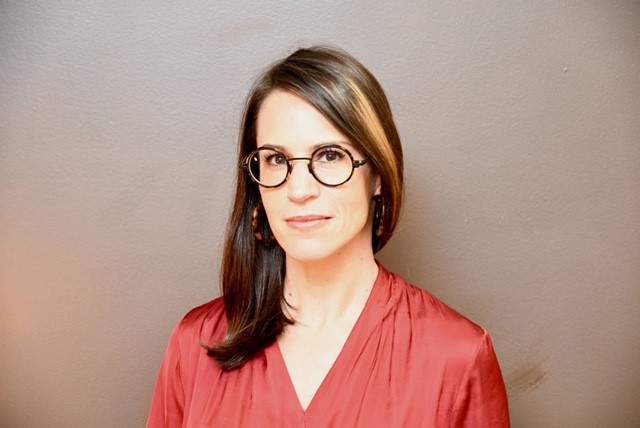
Sarah Birken, PhD is an Associate Professor in the Department of Implementation Science at Wake Forest University School of Medicine. Her scholarship relates to the selection and application of implementation science theories, models, and frameworks, and the role of context, particularly interorganizational relationships, in implementation. Dr. Birken previously cohosted the podcast AcaDames and currently hosts Dear AcaDame, a Q&A substack written and audio column for women in academia.
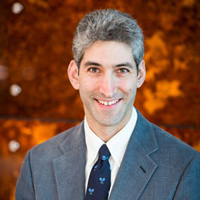
Dr. David Chambers is Deputy Director for Implementation Science in the Office of the Director in the Division of Cancer Control and Population Sciences (DCCPS) at the National Cancer Institute (NCI). Dr. Chambers manages a team focusing on efforts to build and advance the field of Implementation Science (IS) through funding opportunities, training programs, research activities, dissemination platforms, and enhancement of partnerships and networks to integrate research, practice and policy.
From 2008 through the fall of 2014, Dr. Chambers served as Chief of the Services Research and Clinical Epidemiology Branch (SRCEB) of the Division of Services and Intervention Research at the National Institute of Mental Health (NIMH). He arrived at NIMH in 2001, brought to the Institute to run the Dissemination and Implementation Research Program within SRCEB, developing a portfolio of grants to study the integration of scientific findings and effective clinical practices in mental health within real-world service settings. From 2006 to the fall of 2014, Dr. Chambers also served as Associate Director for Dissemination and Implementation Research, leading NIH initiatives around the coordination of dissemination and implementation research in health, including a set of research announcements now featuring 23 of the NIH Institutes, Centers and Offices, annual scientific conferences, and a summer training institute.
Prior to his arrival at NIH, Dr. Chambers worked as a member of a research team at Oxford University, where he studied national efforts to implement evidence-based practice within healthcare systems. He publishes on strategic research directions in implementation science and serves as a plenary speaker at numerous scientific conferences. He received his A.B. degree (with Honors) in Economics from Brown University in 1997, and an M.Sc. and D.Phil degree in Management Studies (Organisational Behaviour) in 1998 and 2001, respectively, from Oxford University (UK).

Margarita Correa-Méndez, Ph.D., M.S., M.P.H., is a Program Director at the Center for Global Health (CGH) in the Research and Training Branch. In this role, Dr. Correa-Méndez supports the center’s implementation science initiatives and manages a portfolio of grants that study tobacco cessation interventions in HIV settings in low- and middle-income countries (LMICs). She is currently engaged in supporting implementation research efforts to promote the adoption, scale-up and sustainment of human papillomavirus (HPV)-based cervical cancer screening and treatment within public health systems in Latin America and the Caribbean. Dr. Correa-Méndez joined NCI in 2021 as a Cancer Prevention Fellow working with the implementation science team at the Division of Cancer Control and Population Sciences (DCCPS) and CGH. She continues to engage with DCCPS through a secondary appointment with the goal of bridging domestic and international implementation science efforts at NCI.
Prior to joining NCI, Dr. Correa-Méndez earned her M.P.H. with a certificate in vaccine science and policy from the Johns Hopkins Bloomberg School of Public Health and a Ph.D. in biological sciences at the University of Maryland Baltimore County. She earned her M.S. in microbiology and B.S. in biology at Universidad de Los Andes in Bogotá, Colombia.

Jennifer Chang Damonte, MA, is a Program Analyst with the Implementation Science team in the Office of the Director in the Division of Cancer Control and Population Sciences (DCCPS) at the National Cancer Institute (NCI). In this role, Jennifer provides organizational support and leadership for key Team initiatives, including the Implementation Science Centers for Cancer Control, the Consortium for Cancer Implementation Science, and the Evidence-Based Cancer Control Programs platform, among other activities.
Jennifer came to NCI from the Veterans Health Administration (VHA) holding roles in the VA Southeast Network (VISN 7) Clinical Resource Hub and the national Technology-based Eye Care Services (TECS) program office, where she facilitated implementation of various telemedicine services (e.g., Tele-Eye Care, Tele-Primary Care, Tele-Mental Health), quality assurance and quality improvement processes, medical resident education, and tele-specialty care research projects.
Prior to joining the VHA, Jennifer worked at Moffitt Cancer Center and University of South Florida, where she worked on various research projects in the health outcomes and behavior area. Jennifer received her Bachelor of Arts degree in Psychology and Linguistics from Emory University in Atlanta, GA and Master of Arts degree in Learning Sciences from University of Delaware in Newark, DE.
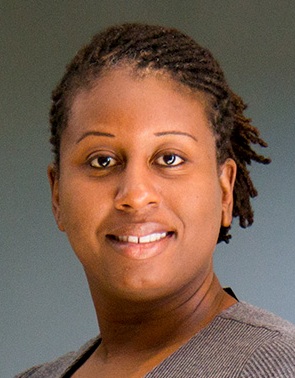
Dr. Farr is an Assistant Professor of health education and promotion at East Carolina University. She received her DrPH in Health Promotion, Education, and Behavior from the University of South Carolina, her MPH in Community Health from George Washington University, and her BS in Human Development from Cornell University. She is a member of the Rural Health Disparities Lab and the Center for Health Disparities at East Carolina University. She also serves as a co-lead of the Supporting Parallel Paths Workgroup of the Community Participation in Implementation Science Action Group of the Consortium for Cancer Implementation Science in addition to her past service in a variety of cancer and public health organizations.
Broadly, her research seeks to identify and propose solutions to system-level drivers of health inequities and has been funded by a range of federal and local organizations. The overarching theme connecting her work is examining how the cultures of healthcare organizations and communities of color impact the adoption of evidence-based cancer screening interventions and prevention behaviors. her research program explores two important drivers of cancer inequities: 1) Persistent racial inequities in breast cancer mortality which is partially due to racial differences in the use and quality of breast cancer prevention services, including the resolution of abnormal breast cancer screening results and 2) Race, class, and geographic-based inequities in colorectal cancer burden, a cancer-site for which increasing the dissemination and implementation of evidence-based screening interventions could dramatically reduce existing inequities. Additionally, she is interested in refining existing public health theories and intervention strategies to account for the contexts and experiences of communities experiencing marginalization and developing approaches to improve the racial and ethnic diversity and generalizability of public health research.
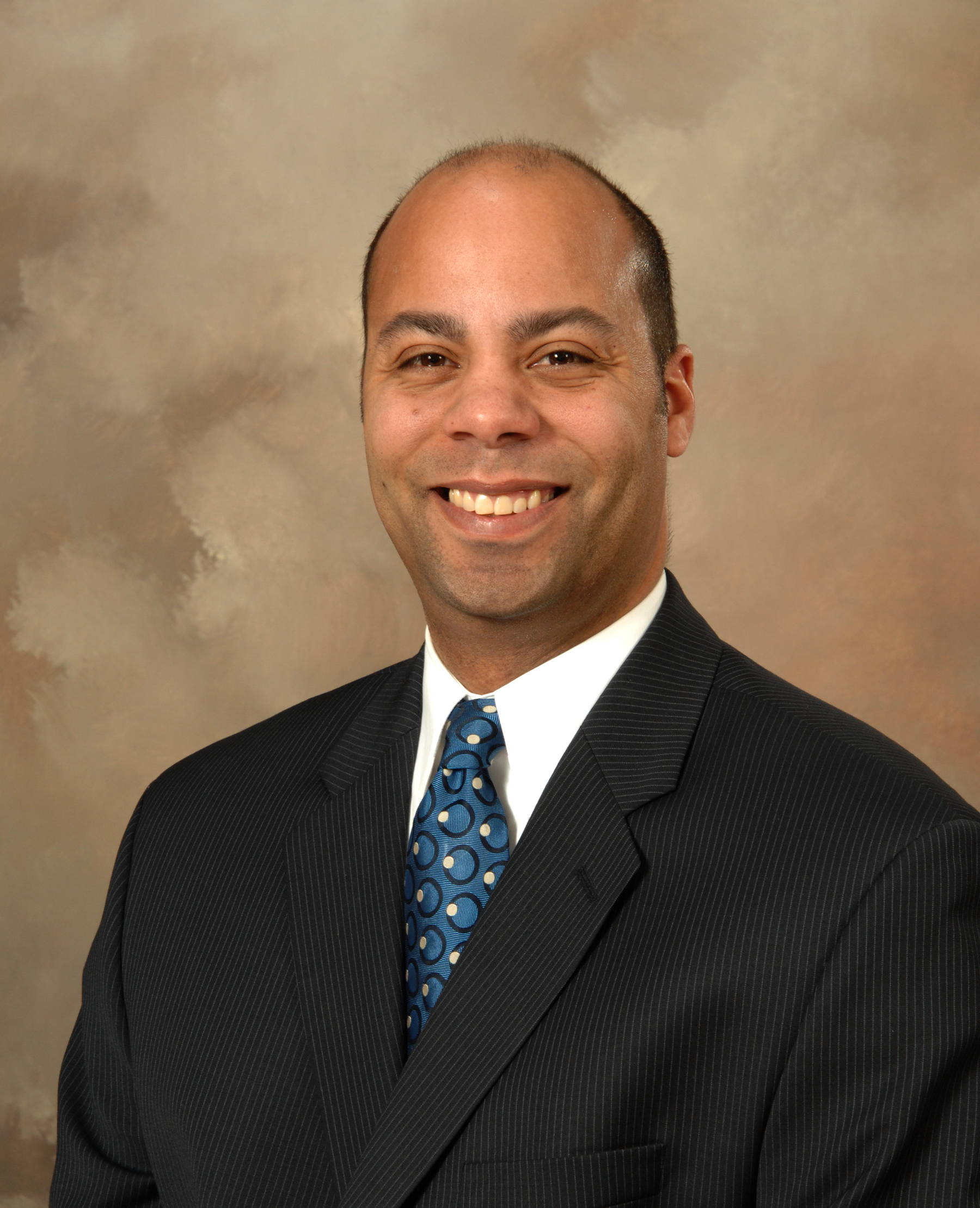
Matthew F. Hudson is the Director of Cancer Care Delivery Research at Prisma Health (Greenville, South Carolina) and Professor of Medicine at the University of South Carolina School of Medicine Greenville. Dr. Hudson conducts and oversees research on patient, clinician, and organization-based interventions improving cancer care and patient well-being. Dr. Hudson holds a leadership position in multiple National Cancer Institute (NCI)-sponsored enterprises, including NCI’s Consortium for Cancer Implementation Science and Comprehensive Oncologic Emergencies Research Network. He is an Associate Editor of JNCI Cancer Spectrum, and editorial board member of Emergency Cancer Care and Learning Health Systems. Dr. Hudson is an alum and small group faculty member of NCI’s Multilevel Intervention Training Institute (MLTI) and previously served the Patient Centered Outcomes Research Institute (PCORI) as a member of their Patient Engagement Advisory Panel. He also served on the National Academies of Sciences Engineering and Medicine’s ad hoc committee, Rethinking Race and Ethnicity in Biomedical Research. Dr. Hudson holds additional faculty appointments at the University of South Carolina’s Arnold School of Public Health, Clemson University, and Wake Forest School of Medicine Department of Implementation Science.
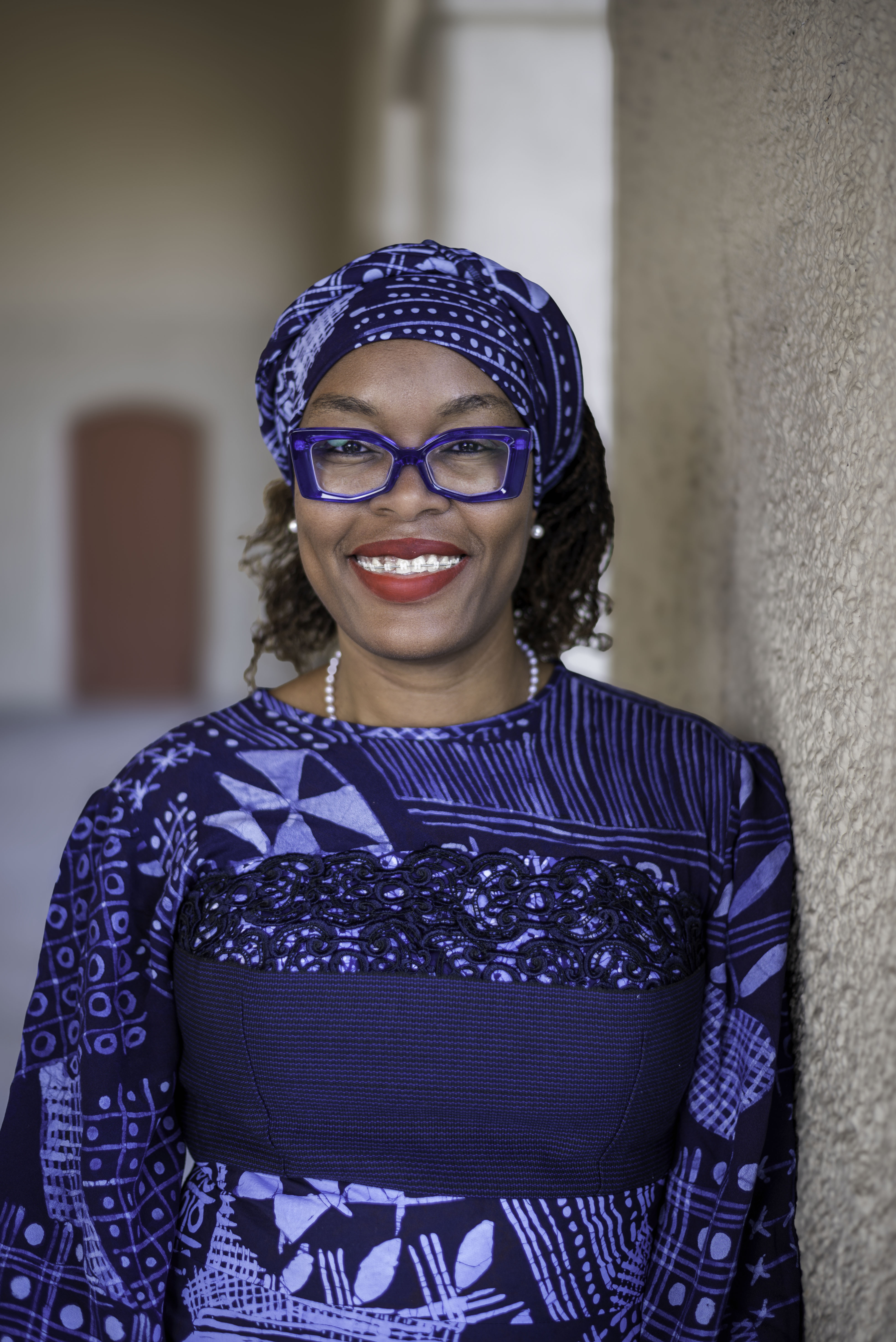
Dr. Juliet Iwelunmor is a tenured Professor of Medicine and an Associate Director for Global Health and Dissemination at Washington University School of Medicine. A passionate advocate for health equity and sustainability, Dr. Iwelunmor is widely regarded for understanding how to make evidence-based interventions last, reshaping the focus on community engagement using participatory research, improving the dissemination of health information, while amplifying the voices of young people in health interventions. She combines more than a decade of authority and leadership in the use of dissemination and implementation science to deliver cutting-edge health programs that create tangible impact.
Prior to joining WUSM, Dr. Iwelunmor was a Professor at Saint Louis University and an Assistant Professor at the University of Illinois at Urbana Champaign. From 2010-2013, she worked as a program specialist for the intersectoral platform on HIV at UNESCO in Paris, France.
Dr. Iwelunmor continues her commitment to amplifying the next generation of researchers, by leading NIH-funded programs such as NIAID STAR which seeks to stimulate training and access to HIV research experiences for under-represented scholars. She also leads the NIH-funded 4 Youth by Youth program (4YBY) and the 4 Girls and Women (4GW) program, which works with young people to increase uptake and sustainability of evidence-based interventions in global settings. A graduate of Penn State University, where she earned her doctorate in Bio-behavioral Health and began her grant-writing journey as an NICHD pre-doctoral scholar, Dr. Iwelunmor is dedicated to advancing scientific excellence through inclusivity with grant-writing process among next generation of scholars, using her storytelling approach that inspires them to begin first with a dream. Her grant writing approach has earned her over $20 million in funding from the NIH.

Erin Kenzie, PhD is an Assistant Professor at the OHSU-PSU School of Public Health at Oregon Health & Science University and holds faculty positions at the Oregon Rural Practice-based Research Network and the Portland State University Complex Systems Program. Her research focuses on the use of systems science methods for improving health outcomes and health equity through evidence synthesis and implementation of evidence-based interventions. She is a past co-leader for the Implementation of Complex / Multilevel Interventions Action Group and a recipient of the CCIS Public Goods Award.

Kristie Long Foley, PhD, MS is Chair of the Department of Implementation Science and Vice Dean for Research Strategy & Integration at Wake Forest University School of Medicine. As leader of the first Department of Implementation Science in the U.S., Dr. Foley is responsible for advancing the science of implementation and dissemination and building a team to support and catalyze our academic learning health system. As Vice Dean, she leads research initiatives that foster integration of our academic enterprise across Advocate Health, including programs that accelerate the growth of our research-intensive faculty, foster embedded scholarship, advance Centers and Institutes, and support evolving research infrastructure.
Dr. Foley is a public health scientist who uses capacity-building strategies to bridge the gap between research and practice to ensure uptake of evidence-based care. She leads one of seven Implementation Science Centers in Cancer Control and has shepherded more than 20 research projects focused on implementation of best practices in tobacco control and cancer care delivery practice. She has garnered >$12M in extramural funding from the National Institutes of Health, Patient-Centered Outcomes Research Institute, American Cancer Society, Robert Wood Johnson Foundation, among others. In addition to her research in the US, she created research-practitioner teams in Hungary and Romania to generate evidence that led to national clean air legislation, increases in tobacco taxation, expansion of youth tobacco prevention programs, and an increase in smoking cessation services. Her work in Eastern Europe was fostered by a Fulbright Scholar Award to Semmelweis University in Hungary and a Fulbright Specialist Award in Romania. In addition to her research, Dr. Foley received the 2019 Wake Forest School of Medicine Mentoring Award for the numerous students, clinicians, and faculty she has mentored and sponsored. In 2021, she completed the year-long Hedwig van Ameringen Executive Leadership in Academic Medicine® (ELAM®) program.

As both a hospital social worker and public health researcher, my work focuses on the team-based delivery of evidence-based hospital care. Throughout my career, I’ve worked to understand how interprofessional and interdisciplinary medical teams deliver high quality, evidence-based care. To achieve this improvement in healthcare delivery, I use implementation science and systems science, focusing on multiple method approaches to solving complex problems. Much of my work has focused on how we measure complex concepts of implementation and quality care in health settings. I have focused on designing and implementing interventions to improve care through the lens of implementation science, including how these interventions can be scaled across contexts.
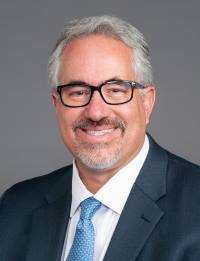
Dr. Ruben Mesa is senior vice president of Atrium Health, president of Atrium Health Levine Cancer (the cancer service line for Atrium Health) and executive director of the National Cancer Institute (NCI)-designated Atrium Health Wake Forest Baptist Comprehensive Cancer Center. Additionally, Dr. Mesa serves as the Vice Dean of the Wake Forest University School of Medicine for cancer programs and the Charles L. Spurr, MD, Professor of Internal Medicine.
Dr. Mesa's research focuses on MPN biology, novel therapeutics and over 100 phase I-III clinical trials, symptom assessment tools and non-pharmacological interventions to alleviate MPN symptoms. He has led or co-led the development of 6 drugs that have been FDA approved for MPNs. Dr. Mesa has won many career awards for his research from the Mayo Clinic, from patient and MPN organizations, and was the 2024 Distinguished Alumnus from University of Illinois-Urbana-Champaign College of Liberal Arts and Sciences.
He is passionate about advancing cancer health equity and increasing minority patients' participation in cancer clinical trials. At the National Cancer Institute Dr. Mesa both sits on CTAC (Clinical Trials Advisory Council) as well as is Cancer Equity Leader (CEL) for the NCI Center for Health Equity.
Dr. Mesa previously was executive director of the NCI-designated Mays Cancer Center at UT Health San Antonio MD Anderson and deputy director of the Mayo Clinic Comprehensive Cancer Center.
Dr. Mesa has over 800 lifetime medical publications, with more than 500 peer-reviewed manuscripts, 15 book chapters and 2 edited books. He is frequently invited to speak on MPNs with over 600 lectures and visiting professorships, nationally and internationally.
Dr. Mesa received his medical degree at the Mayo Clinic College of Medicine and Science, where he also completed residency and fellowship training.
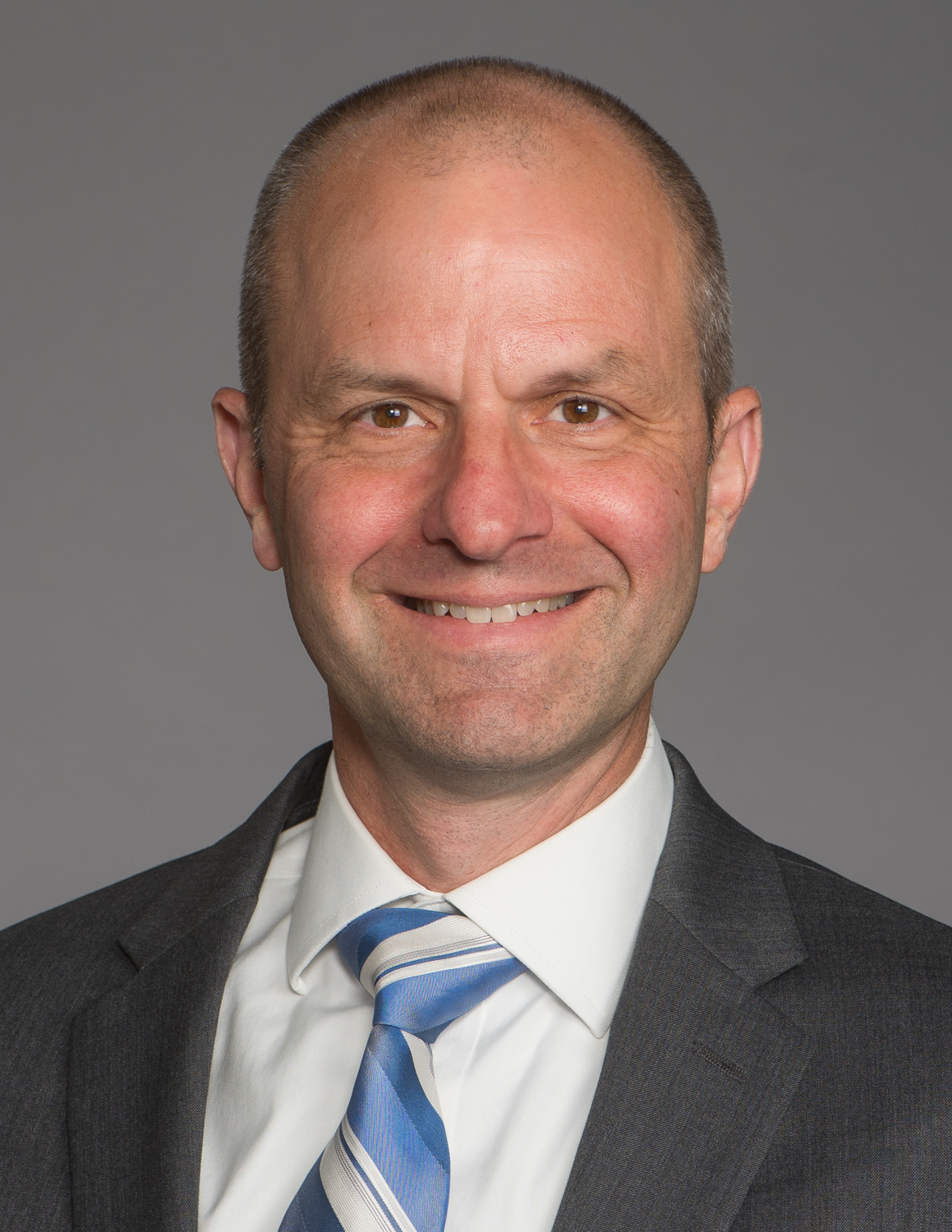
Dr. Dave Miller is a primary care physician, board-certified clinical informaticist, and Professor of Implementation Science at Wake Forest University School of Medicine. Dr. Miller received his medical degree with distinction from the University of Carolina at Chapel Hill. He then completed residency training in internal medicine at Dartmouth, where served as Chief Resident and Instructor in Medicine for one year before joining the faculty at Wake Forest University School of Medicine. Dr. Miller began his career in cancer control and prevention as an American Cancer Society Cancer Control Career Development Award recipient. Dr. Miller has over 20 years of experience developing, testing, and implementing digital health interventions focused on increasing cancer screening in populations experiencing health disparities. His research has been continuously funded by the National Cancer Institute for over 10 years. Dr. Miller has served as the principal investigator of two NIH-funded hybrid implementation-effectiveness pragmatic randomized trials of digital health interventions, one for lung cancer screening and the other for colorectal cancer screening. He is currently the PI of an NIH-funded Small Business Technology Transfer (STTR) grant to support the commercialization and dissemination of research discoveries.
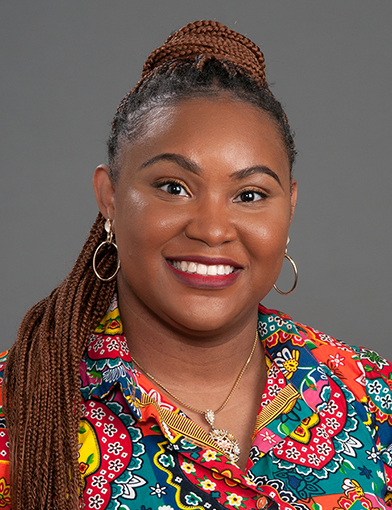
Ucheoma Nwaozuru, PhD, is an Assistant Professor in the Department of Implementation Science, Division of Public Health Sciences at Wake Forest School of Medicine. She received a Master’s in Community Health and Preventive Medicine from the University of Illinois at Urbana-Champaign, and a PhD in Public Health Studies from Saint Louis University, College for Public Health and Social Justice.
Her training and research experience have involved qualitative research methodology, community-based participatory research, crowdsourcing, and social innovations for health and the use of these principles to promote health equity, intervention adoption, and sustainability. Dr. Nwaozuru’s research centers on the role of social innovations and technologies in developing sustainable and contextually appropriate health solutions to enhance health and well-being. She is passionate about mentoring young people and has been involved in the planning and execution of crowdsourcing open calls to develop youth-driven strategies to promote the uptake of HIV prevention interventions among young people in Nigeria and the U.S.
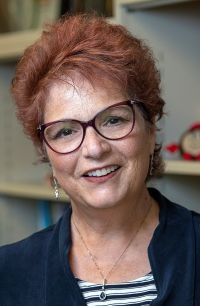
Electra D. Paskett, Ph.D., became the Marion N. Rowley Professor of Cancer Research at The Ohio State University in 2002. She is the Director of the Division of Cancer Prevention and Control in the College of Medicine, a professor in the Division of Epidemiology in the College of Public Health, Deputy Director for Population Sciences and Community Outreach and Founding Director of the Center for Cancer Health Equity at the James Cancer Hospital. Dr. Paskett’s 480+ peer-reviewed publications showcase her work in intervention research directed at cancer prevention, early detection and survivorship issues. Her studies use multi-level interventions in transdisciplinary teams with community-based participatory research to identify and intervene on factors causing disparities among underserved populations. Dr. Paskett successfully completed the Principal Investigator of the Ohio Patient Navigator Research Program and has received funding from the Breast Cancer Research Foundation since 2001. She continues to work with the Women’s Health Initiative (WHI) and is one of the multiple PIs of the WHI Cancer Survivor Cohort. Currently PI of the WHI Midwest Regional Coordinating Center, she has funding for a UG3 that is looking at improving colorectal cancer screening through implementation science and a P01 that is looking to improve cervical cancer prevention services in Appalachia. Dr. Paskett was elected as a Fellow to the American Association for the Advancement of Science in 2004. She is a past-President of ASPO, a recent Deputy Editor of the journal Cancer, Epidemiology, Biomarkers & Prevention, and Section Editor of the journal, Cancer. She is Director of the Cancer Control program in Alliance. In 2016, she became a member of the NCI’s National Cancer Advisory Board, and in 2024, Dr. Paskett was elected to a 3-year term of the Board of Directors of AACR (American Association for Cancer Research).
Miranda is a MD-PhD student studying implementation science within the University of Florida's Department of Health Outcomes and Biomedical Informatics. Her current research includes projects investigating the sustainability of tobacco treatment programs at NCI-Designated Cancer Centers, addressing shared decision-making for chronic pain management, and improving the uptake of lung cancer screening in urban and rural primary care clinics. Before coming to the University of Florida, Miranda received an MPH in Global Health from Washington University in St. Louis and worked at the Centers for Medicare & Medicaid Services Innovation Center focusing on alternative models for international drug pricing.

Ramzi Salloum is a Professor and the Division Director for Implementation Science and Health Interventions in the Department of Health Outcomes and Biomedical Informatics at the University of Florida College of Medicine. Salloum also serves as the Associate Director for Community Outreach and Engagement with the University of Florida Cancer Center and as the Director of the Learning Health System Program at the UF Clinical and Translational Science Institute. Dr. Salloum’s work considers the dissemination and implementation of evidence-based practices in cancer prevention and control, both in the United States and in global settings. His research has been funded by the National Cancer Institute, the Patient-Centered Outcomes Research Institute, the Agency for Healthcare Research and Quality, and the Florida Department of Health. He has authored more than 200 peer-reviewed publications. Dr. Salloum leads several large, hybrid implementation-effectiveness trials and is leading the evaluation of the sustainability of the Cancer Center Cessation Initiative across 52 NCI-Designated Cancer Centers.

I am a social and health psychologist in the Department of Social Sciences and Health Policy at the Wake Forest University School of Medicine. My research focuses on the intersection of cancer survivorship, integrative medicine, and implementation science. I investigate how to empower people to be active participants in healthcare to optimize their valued outcomes (self-manage). For example, I lead and collaborate on teams who study scalable autonomy-supportive interventions for managing symptoms and health behaviors (e.g., yoga, health coaching). My work in this area is innovative because I facilitate adapting these self-management interventions, so that they are coordinated with and support guideline-concordant comprehensive cancer care. I also extend my interests in empowering patients to colleagues through facilitating a mind-body medicine skills program and being a professional development and well-being coach. I currently serve on the NCI Symptom Management and Health-Related Quality of Life Steering Committee and as Co-Chair of the Wake Forest NCI Community Oncology Research Program Research Base Cancer Control Committee.
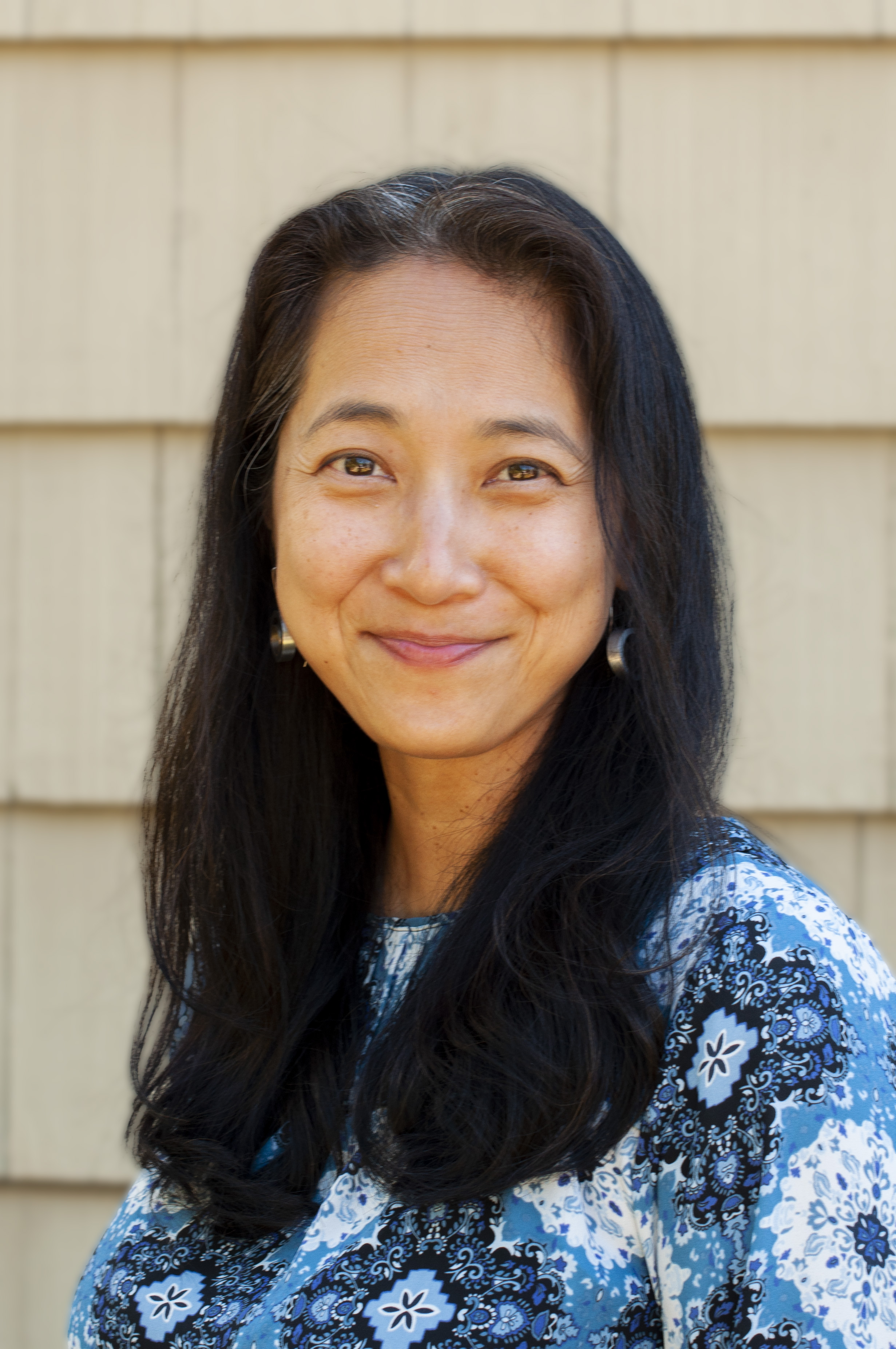
Jamie Thompson, MPH, is a Senior Research Associate at the Kaiser Permanente Center for Health Research in Portland, Oregon, with over 25 years of experience in public health. She specializes in health disparities research, focusing on improving healthcare for underserved populations through patient-centered efforts. Ms. Thompson leads multiple community engagement projects across the Pacific Northwest, including initiatives for colorectal cancer screening and HPV vaccination. An expert in boot camp translation—a community-based participatory approach—she conducts engagement sessions with diverse communities and develops culturally responsive patient outreach materials. Additionally, she creates patient navigation training materials for community health workers while spearheading efforts to produce culturally relevant research resources for various partners. Her impactful work in community engagement and colorectal cancer prevention has garnered significant recognition, including the American College of Gastroenterology's 2024 SCOPY Awards for "Inspiration & Impact" and "Best Initiative Serving American Indian and Alaska Native Populations," as well as the 2022 SCOPY Award for "Best Comprehensive Digital Production." Ms. Thompson completed her public health training at Columbia University Mailman School of Public Health, specializing in epidemiology.

Jessica R. Thompson, PhD, is an Assistant Professor in Health Policy and Administration in the College of Health and Human Development at The Pennsylvania State University. She is also a member of the Penn State Social Science Research Institute and the Penn State Cancer Institute. Dr. Thompson is an expert in community-engaged and mixed methods approaches to uncover the relationships between social, environmental, and contextual factors affecting chronic disease among women in Appalachian and rural communities. Dr. Thompson currently has a National Cancer Institute-funded K99/R00 entitled Reducing Lung Cancer Risk among Appalachian Women Using Community‐Engaged Intervention Research (K99CA277245/R00CA277245), which she has brought to Penn State since completing her postdoctoral training with the Community Impact Office of the University Kentucky Markey Cancer Center.
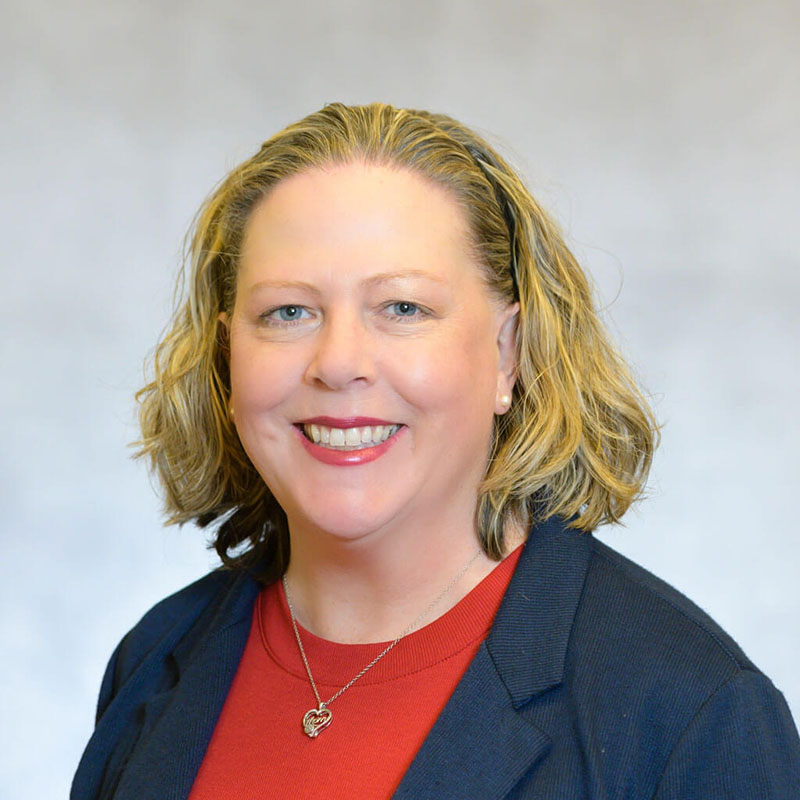
Cynthia A. Vinson, Ph.D., M.P.A., is a senior advisor for the Implementation Science Team in the Office of the Director in the Division of Cancer Control and Population Sciences (DCCPS) at the National Cancer Institute (NCI). She currently works on building and sustaining the field of implementation science (IS) to enhance the integration of evidence-based guidelines, programs, and policies for cancer control in public health and clinical practice. Dr. Vinson leads the Consortium for Cancer Implementation Science (CCIS) which seeks to develop a new approach for the field to work together to address key challenges and identify and develop new areas of investigation toward advancing the IS agenda in cancer control. Dr. Vinson also co-leads NCI’s Implementation Science Centers in Cancer Control (ISC3) which supports the rapid development, testing, and refinement of innovative approaches to implement a range of evidence-based cancer control interventions. She also co-leads the Scaling-up and Maintaining Evidence-based Interventions to Maximize Impact on Cancer (SUMMIT) initiative which supports research on scale-up and sustainment of lung cancer screening for populations at high risk for lung cancer and tobacco use treatment for cancer survivors.
As a member of the Comprehensive Cancer Control National Partnership she is responsible for working within NCI and with other agencies and organizations to translate research funded by DCCPS into practice.
She has helped launch many of the IS Team’s current initiatives, including Evidence-Based Cancer Control Programs (EBCCP) and SPeeding Research INTerventions, and many funding opportunities conferences and trainings.
Dr. Vinson has a doctorate in public administration and health policy from George Washington University, and a master’s in public administration and international development from Rutgers, the State University of New Jersey.
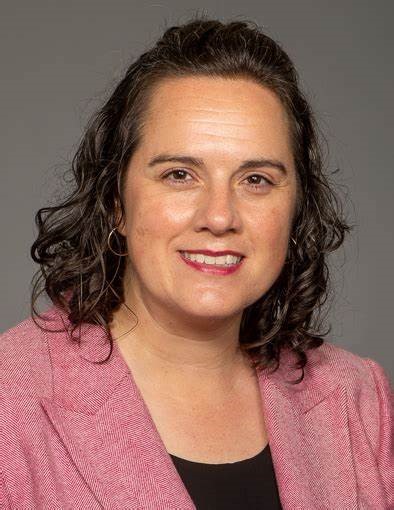
Kathryn Weaver, PhD, MPH is a Professor in the Departments of Social Sciences and Health Policy, Implementation Science, and the Translational Science Institute at Wake Forest University School of Medicine. She completed a PhD in Clinical Health Psychology at the University of Miami, an MPH from the University of Illinois-Chicago, and postdoctoral training at the National Cancer Institute in the Cancer Prevention Fellowship Program.
Dr. Weaver serves as the multiple PI of the Wake Forest NCI Community Oncology Research Program (NCORP) Research Base where she oversees a portfolio of cancer control and cancer care delivery multi-site trials with partners from almost 1,000 oncology clinics across the country. Within the Wake Forest Baptist Comprehensive Cancer Center, Dr. Weaver serves as the Associate Director for Population Sciences. Dr. Weaver’s research focuses on cancer health disparities, cancer care delivery, and post-treatment follow-up care among cancer survivors, with a particular emphasis on cardiovascular health and rural and underserved populations.

Dr. Wheeler is a health services researcher and decision scientist focused on quantifying the social, behavioral, clinical, and organizational factors that affect healthcare access, quality, value and equity. Her research portfolio is primarily focused on cancer care delivery, with particular emphasis on improving value, understanding the financial and psychosocial impacts of cancer, and reducing health disparities. She also is a methodological resource for simulation modeling and systems science, ‘big data’ linkages and analytics, behavioral intervention studies, and comparative and cost effectiveness research. Dr. Wheeler is especially knowledgeable and well-versed in using economic, epidemiologic, and systems modeling to support better healthcare decisions, and she is adept in handling and analyzing complex datasets, including SEER-Medicare data, state cancer registry data linked to all payer claims data, epidemiologic cohort data (e.g., Carolina Breast Cancer Study), and healthcare workforce data.
Dr. Wheeler directs the Office of Community Outreach and Engagement within the UNC Lineberger Comprehensive Cancer Center and is a member of the senior leadership team and the Lineberger Equity Council. She directs the CDC-funded Cancer Prevention and Control Research Network as PI of the Coordinating Center and is a research fellow at the Center for Health Promotion and Disease Prevention. She co-directs the NCI-funded T32 Cancer Care Quality Training Program (CCQTP). She currently serves as Associate Editor for the Journal of Clinical Oncology and Immediate Past Chair of the ASCO Quality Care Symposium. Dr. Wheeler was awarded the 2017 Hettleman Prize for Scholarly and Artistic Achievement and the 2017 Early Career Award from the Association of Schools and Programs in Public Health (ASPPH). In 2023, she was recognized as the Michael S. O’Malley Distinguished Professor of Cancer Health Policy and Community Engaged Research.